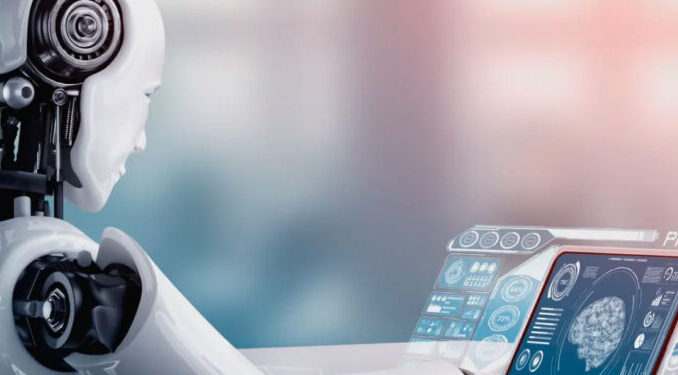
AI: 5 new jobs growing rapidly in Europe creating opportunities for Nigerians
The growth of Artificial Intelligence (AI) globally has ushered in a wave of new opportunities especially in Europe which Nigerian professionals can now tap into for remote or on-site jobs within the EU region.
Kwamkwam news learns that this surge in AI-related jobs follows the recent approval of the EU Artificial Intelligence Act by the European Parliament, marking the world’s first comprehensive regulatory framework for companies engaged in AI technologies. Consequently, Europe has emerged as a prominent player in the global AI landscape.
While much attention has been devoted to the potential loss or transformation of existing jobs due to AI, there has been comparatively less discussion about the emergence of new professions in Europe as a result of this technological advancement.
Given the rapidly evolving tech landscape across the continent, here are five AI-related roles that recruitment agencies or independent studies suggest are either currently hiring or poised to do so in Europe.
-
Artificial Intelligence Engineer
The role of an Artificial Intelligence Engineer involves the development, programming, and training of AI algorithms to emulate human brain functions, as defined by Microsoft.
According to Microsoft, individuals aspiring to pursue this role must possess expertise in software development, programming, data science, and data engineering.
LinkedIn’s 2024 Job Market Prospects for Europe report highlighted that Artificial Intelligence Engineers ranked among the fastest-growing professions in Italy and Switzerland, securing the second and third positions, respectively.
The report emphasized that applicants in both countries would require skills in computer vision, machine learning, and natural language processing to excel in these positions.
In Switzerland, most applicants had a minimum of 3 years of experience before securing these roles, whereas in Italy, the average experience stood at around 19 months.
-
Prompt Engineer
Prompt Engineers, also known as “AI translators” according to recruitment firm Protiviti, plays a crucial role in ensuring effective communication between humans and AI systems.
Their primary responsibility is to refine the prompts provided to large language models (LLMs) such as OpenAI’s ChatGPT, ensuring that the AI generates the most accurate responses possible.
Additionally, these prompt engineers are capable of crafting detailed descriptions for ChatGPT, aligning them more closely with the specific requirements of businesses.
As projected by UK-based firm Robert Half, this involves tailoring prompts to meet the precise needs of a given organization. For instance, prompt engineers may specify the structure, number of points, and summary length for each section of a business whitepaper, thereby optimizing the output generated by AI systems.
- “The Prompt Engineer is therefore both an IT expert and a business analyst in one.
- “In addition to technical knowledge, he or she brings communication and analytical skills to the table”, Christian Schmitz, a recruitment consultant with Robert Half, said.
Individuals interested in pursuing engineering careers can begin without a university degree, although both Protiviti and Robert Half have developed specialized programs for the next five years.
-
Cybersecurity Analyst with AI
Similar to Artificial Intelligence Engineers, Cyber Security Analysts/Security Operations Analysts are among the fastest-growing professions in Europe, as indicated by LinkedIn’s 2024 forecast.
This trend is particularly evident in countries like Germany, Italy, Sweden, and the Netherlands.
Cybersecurity analysts are responsible for implementing security standards, identifying and assessing risk factors, and uncovering vulnerabilities within companies or organizations to safeguard them from external cyberattacks.
Although this profession isn’t exclusively linked to the emergence of AI, Sebastian Mayer from Protiviti mentioned that individuals with a background in AI will possess an advantage in this field.
- “There is always a risk that the large amounts of data fed into AI will fall into unauthorised hands.
- “AI will not fundamentally turn cybersecurity on its head… but AI developers who take security aspects into account will be in particular demand”, Mayer said in a statement.
-
AI Technology specialist or consultant
The European Commission is actively recruiting consultants, referred to as technology specialists in the field of AI, in Luxembourg and Belgium.
This initiative follows closely on the heels of the passage of the EU AI Act, the world’s first legal framework addressing the risks and opportunities associated with this new technology.
According to the job description released by the newly established European AI office, technology specialists will be responsible for implementing and overseeing “new regulations for general-purpose AI models” and developing “cutting-edge codes of practice” for AI usage.
These positions also involve the development of tools, methodologies, and standards for assessing the capabilities and risks of general AI models.
The European AI office is therefore seeking individuals with expertise in assessments, investigations, and monitoring of the AI “ecosystem” for these roles.
The European Commission is particularly interested in candidates with backgrounds in research science, computer science, software engineering, and data engineering, along with prior experience in the field of AI.
-
AI Ethics Officer
According to Robert Half, Ethics Officers would ensure that the utilization of AI in the hiring process or its broader impact on employees remains fair and equitable.
One application could involve assessing potential biases that may arise when employing AI in the hiring process.
Experts from six European countries, recommended before the EU AI Act that the European Union appoint AI Ethics Officers to “oversee AI ethics within organizations”.
Their research indicated that AI Ethics Officers should hold internal positions that blend scientific and technical expertise with ethical and human rights awareness when advising on AI system usage.
In their view, this role should be independent and empowered to raise concerns about potential harm. The responsibilities would resemble those of a Data Protection Officer or a Chief Ethics Officer, positions already established within the framework of the European Commission, Parliament, and other entities.

Leave a Reply